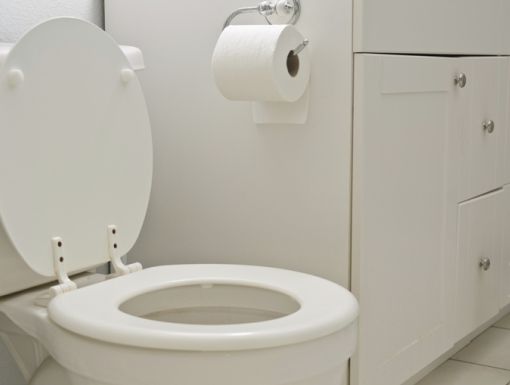
What is Your Poo Telling You?
When it comes to bathroom habits, the topic is not one that everyone is eager to discuss – at least for those above the age of four. Nevertheless, it can be a subject of jokes and hilarious conversations to some.
But your bodily emissions are an important health topic that deserves serious attention. In fact, if you ignore what you deposit in your toilet, you may be missing some alarming signs that something may be wrong. Mentioning your bowel habits to your provider can tell us if something is not working well, especially if you’re experiencing any deviation from your “normal.”
Need an appointment?
Call 1-866-846-3550 to schedule your colonoscopy screening today.
Although there is a certainly a wide variety of stool colors, textures and forms that are considered "normal," there are definitely things that, if seen or experienced, warrant immediate medical attention.
With this in mind, I will elaborate on some alarming signs and symptoms:
Frequency
When it comes to how frequent you should have a bowel movement, you have to begin by defining what is normal for you. Some people have 1 or 2 bowel movements a day, while others can go once a week with no concerns.
However, when there is a pattern change, associated pain, straining or painful passage of feces, then there may be something wrong. Also, we must keep in mind that things like dietary changes, dehydration, working outside of the house, long working hours, stress and juggling family and work related issues can lead to pattern changes.
One of the most common reasons we see patients is for chronic constipation and while this can be a result of all of the issues mentioned above, it could also be due to a restriction or blockage in your colon, especially if it is accompanied with a change in your pattern. In patients over 50, this can be a sign of colon cancer.
Color
Poop comes in just about all the colors of the rainbow but certain colors are signs of things could be wrong. Feces gets its brown color from bile that is secreted from your liver. While certain foods and medications can change the color of your feces, there are a couple of colors to look out for.
If your stool becomes black in color and pasty in consistency, it usually means that you are bleeding from a source high up, like a stomach ulcer or stomach cancer. This type of black stool is called “melena” and has a very peculiar foul smell (once you smell it will forever be imprinted in your smelling memory).
Pepto-Bismol, spinach, collard greens, iron pills and other foods can also turn your stools black, but it wouldn’t be accompanied by a pasty consistency or the smell of digested blood. In certain conditions where there is no secretion of bile into your gut, you may get a clay/gray color. A blockage of bile flow from a cancer could be the culprit in this case.
Size and Shape
Size and shape can be different depending on your water intake, how much protein and fiber you get in your diet or what medications you take, but a change could also be a sign of a lesion in your colon.
The colon’s main purpose is not only to eliminate waste but also to retain as much water as possible. If you are dehydrated to begin with and your colon pulls water out of your waste, it will result in feces that is hard, lumpy or sometimes pencil thin. If you see a change in your usual “shape” pattern, you should recognize if there are any associated symptoms, like pain, blood with the stools, weight loss, bloating or discomfort.
Watery, oily, floating stools or partially digested food with your feces could be a sign of infection or inflammation. There are many conditions that cause maldigestion (either poor intestinal absorption or lack of digestive enzymes to process the foods) and these are few of the signs and symptoms you may see.
Smell
The smell of your feces is primarily due to the many bacteria that exist in your gut. The reason for these bacteria is to help eliminate waste and destroy toxins that are present in your gut. Though the smell of poop can be rather unpleasant, smells that are particularly strange or foul shouldn't be ignored.
It's hard to tell people that stool can smell even worse, but it can. If there is a change in your stool that persists or is unusual, you should see your doctor.
The bottom line is to pay attention: look, listen and smell before you flush!



